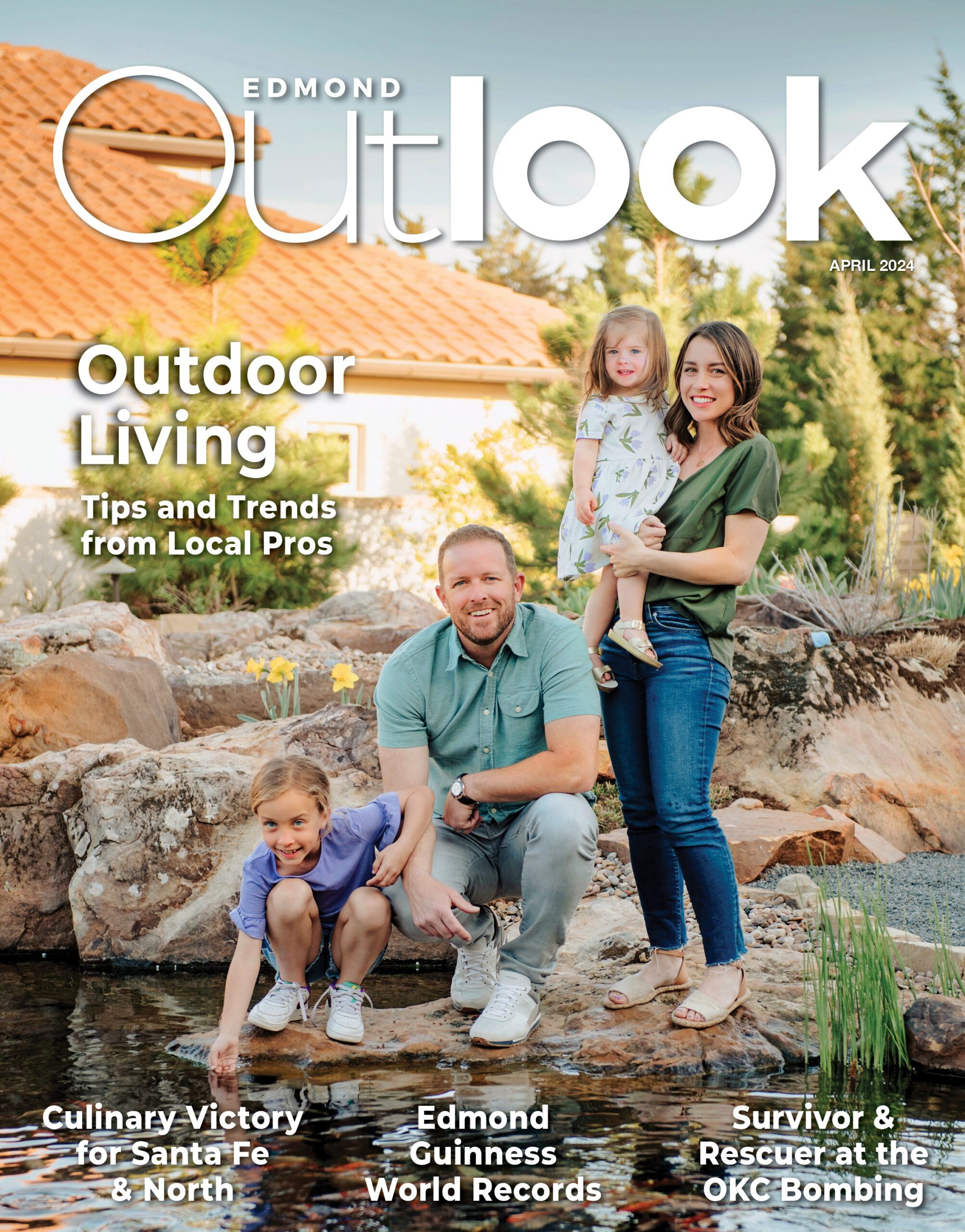Fostering Hope
Fostering children isn’t easy, but three Edmond foster families describe it as the most rewarding thing you can do. In Edmond there are approximately 159 children in 135 foster homes, but more homes are needed. “Even if we had 100 more homes it wouldn’t be enough,” says Child Welfare Specialist Nina Levingston.
Edmond residents Richard and Janet Banks have four biological children, ages 12, 10, 7 and 6, and began fostering 14 months ago after first being an emergency and respite home in Edmond. “We knew we wanted to adopt and fostering is really the best way,” says Janet. “You get to be part of these children’s lives early on and foster parents get the first chance to adopt.”
Janet home-schools and says many home-school families are also foster/adopt families. They provide a strong support network for each other.
“People are afraid to let their hearts belong to someone that might leave, but I like to say, ‘You can’t save all of them but you can save one of them,’” says Janet. She also understands that many may be afraid that foster children will have behavioral problems. “A lot of children have behavioral problems. It’s not just this population,”
she says.
David and Rhonda Dietz of Edmond have two sons, ages 25 and 16, and hope to adopt a daughter. “We didn’t have an opportunity to raise girls so we foster them. Our ultimate goal is to adopt a little girl,” says Rhonda. They began fostering in December 2008 and have cared for seven children in six months. The Dietz home isn’t typical. They often serve as an emergency shelter while Oklahoma’s Department of Human Services locates a kinship placement. Even though Rhonda manages a loan company, the couple is still able to foster three girls, ages 2, 3, and 6 months. “Once you establish a routine it’s really not that bad,” says Rhonda. But she freely admits she has a hard time saying “no.”
“These children come with nothing. One child just had footed pajamas. That’s it. If they come from the shelter they’re wearing little bands telling who they are. It breaks your heart,” Rhonda says. “When we get a child we treat them as ‘ours’ so they feel wanted and loved. These children are just dying to give and receive love. Our girls are just the most loving children.”
Dawn Thurman’s father was raised in an orphanage, often helped at Boys Ranch Town in Edmond and taught Dawn and her brother to help children. For many years Dawn thought foster parenting required at least one “stay-at-home parent.” Because she and her husband, Cliff, both work she thought her dream of foster parenting was unattainable. “Then one day I read an article that said DHS would pay for day care so foster parents could work. I called my husband all excited,” says Dawn. “We always wanted a big family and couldn’t have one, so here was our chance.”
Cliff and Dawn and their two children, ages 19 and 17, fostered 33 children during the past five years and adopted four. The Thurmans list a significant support network including their church, families, two day care facilities, and understanding workplaces which enable them to care for eight children.
Dawn says her teens love being a foster family and she credits fostering with bringing their family together. “When the first baby came everyone was hooked. It’s so amazing to watch them,” she says. “We can’t imagine a time when they weren’t here.”
But Dawn urges those with young children to wait to foster. “You need to give your full attention to your children. Because these kids need so much it would be difficult to have enough attention and energy for your own children,” she says. “There hasn’t been a child yet who didn’t come in ill or undernourished. But you get to teach them how to love. To love them and see them get healthy and get that sparkle back in their eye is the most rewarding thing.”
The Thurmans have also been a part of a new DHS program called “Bridging.” The goal is to be a bridge between foster care and the children’s return to their homes. “You’re not just fostering a child, you’re fostering a family. A lot of these parents were foster children themselves and they don’t know how to be parents,” says Dawn. “By forming a relationship with the child’s biological family you can help create a better situation for the child.”
For the opportunity to provide a home and a better situation for a child in need, or for more information, call Jayme Howard at 405-767-2913 or e-mail Jayme.Howard@okdhs.org.


